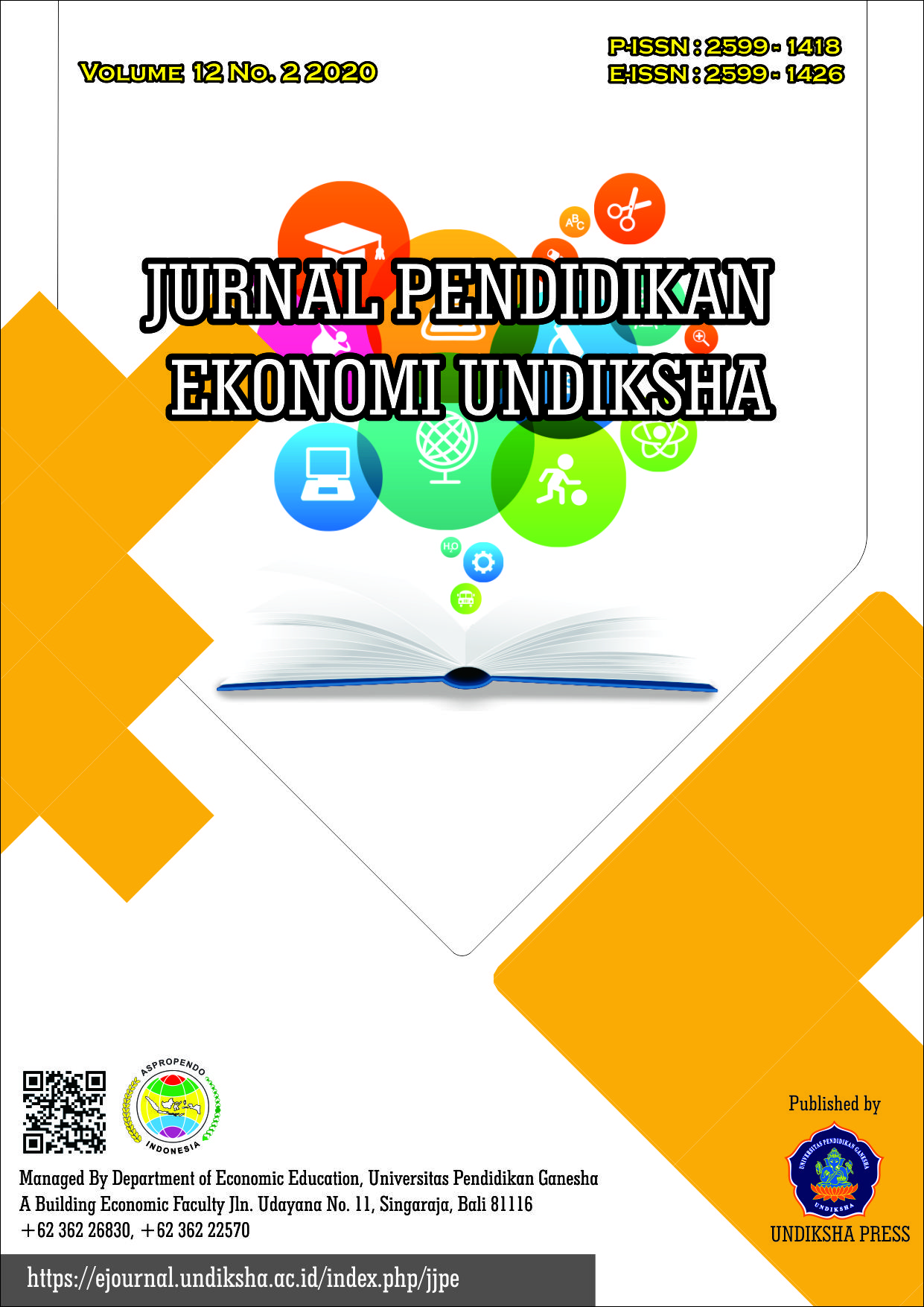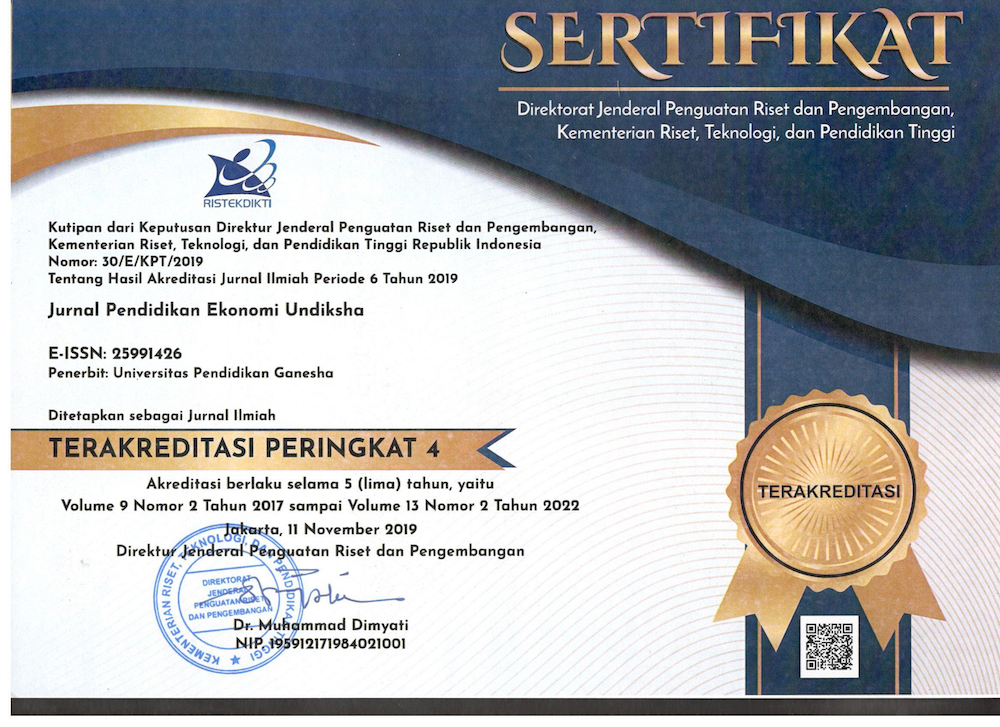Efektivitas Media Business Map dalam Meningkatkan Kompetensi Berwirausaha Siswa SMK
DOI:
https://doi.org/10.23887/jjpe.v12i2.29865Kata Kunci:
business map, entrepreneurial competence, learning mediaAbstrak
The purpose of this study was to analyze the effectiveness of application-based business map media as an effort to maximize student competence in making business plans because it is through a business map. The data analysis method in this research is quantitative descriptive. Where the authors will test the effectiveness of the application of business map media in Creative Products and Entrepreneurship subjects in increasing the entrepreneurial competence of vocational students. The effectiveness test uses the benchmark value of g (gain) where effectiveness is obtained from the average gain of students' entrepreneurial competency assessments through confirmation of the worksheets before treatment (pre-test) and after treatment (post-test). The results showed that the media business map was effective in improving students 'entrepreneurial competence, especially in terms of exploring ideas to utilize local potential into superior products that had high selling value, able to improve students' skills in business planning and product evaluation, which was able to foster hard work attitudes, creative and innovative peopleReferensi
Aini, Q., Dhaniarti, I., & Khoirunisa, A. (2019). Effects of iLearning Media on Student Learning Motivation. 3(1), 1–12.
Bagheri, M., Zah, W., Ali, W., Chong, M., Abdullah, B., & Daud, S. M. (2013). Effects of Project-based Learning Strategy on Self-directed Learning Skills of Educational Technology Students. Contemporary Educational Technology, 4(1), 15–29.
Bell, R. (2015). Developing the next generation of entrepreneurs: Giving students the opportunity to gain experience and thrive. International Journal of Management Education, 13(1), 37–47. https://doi.org/10.1016/j.ijme.2014.12.002
Botha, M. (2010). A project-based learning approach as a method of teaching entrepreneurship to a large group of undergraduate students in South Africa. Education as Change, 14(2), 213–232. https://doi.org/10.1080/16823206.2010.522059
Delmastro, M. (2001). Technology-Based Entrepreneurs : Does Internet Make a Difference ? 177–190.
Fayolle, A., & Gailly, B. (2015). The impact of entrepreneurship education on entrepreneurial attitudes and intention: Hysteresis and persistence. Journal of Small Business Management, 53(1), 75–93. https://doi.org/10.1111/jsbm.12065
Henrekson, M. (2007). Entrepreneurship and Institutions. Ssrn, 2(1), 74–89. https://doi.org/10.2139/ssrn.996807
Hujer, B. Y. R., Thomsen, S. L., & Zeiss, C. (2006). T h e effects of vocational training p r o g r a m m e s on the duration of u n e m p l o y m e n t in Eastern Germany *. 321(2001), 299–321.
Indonesia, K. K. (2019). STATISTIK. (41), 1–16.
Järvi, T. (2012). Teaching entrepreneurship in vocational education viewed from the regional and field perspectives. Journal of Vocational Education and Training, 64(3), 365–377. https://doi.org/10.1080/13636820.2012.691538
Kleine, K. (2019). The Learning Process in Technology from an Engineering Degree *. 00(00), 1–17. https://doi.org/10.1111/jsbm.12514
Ruskovaara, E., & Pihkala, T. (2015). Entrepreneurship education in schools: Empirical evidence on the teacher’s role. Journal of Educational Research, 108(3), 236–249. https://doi.org/10.1080/00220671.2013.878301
Solomon, G. (2007). An examination of entrepreneurship education in the United States. Journal of Small Business and Enterprise Development, 14(2), 168–182. https://doi.org/10.1108/14626000710746637
Sugiyono. (2013). Metode Penelitian Pendidikan: Pendekatan Kuantitatif, Kualitatif, dan R&D. Bandung: Alfabeta.
Winarno, A. (2016). Entrepreneurship Education in Vocational Schools: Characteristics of Teachers, Schools and Risk Implementation of the Curriculum 2013 in Indonesia. Journal of Education and Practice, 7(9), 122–127. Retrieved from https://search.proquest.com/docview/1826529296?accountid=12753





